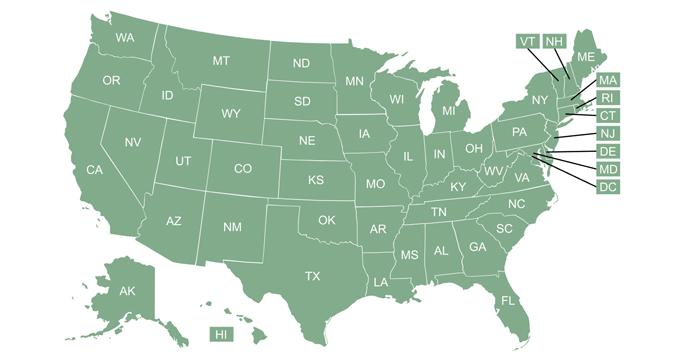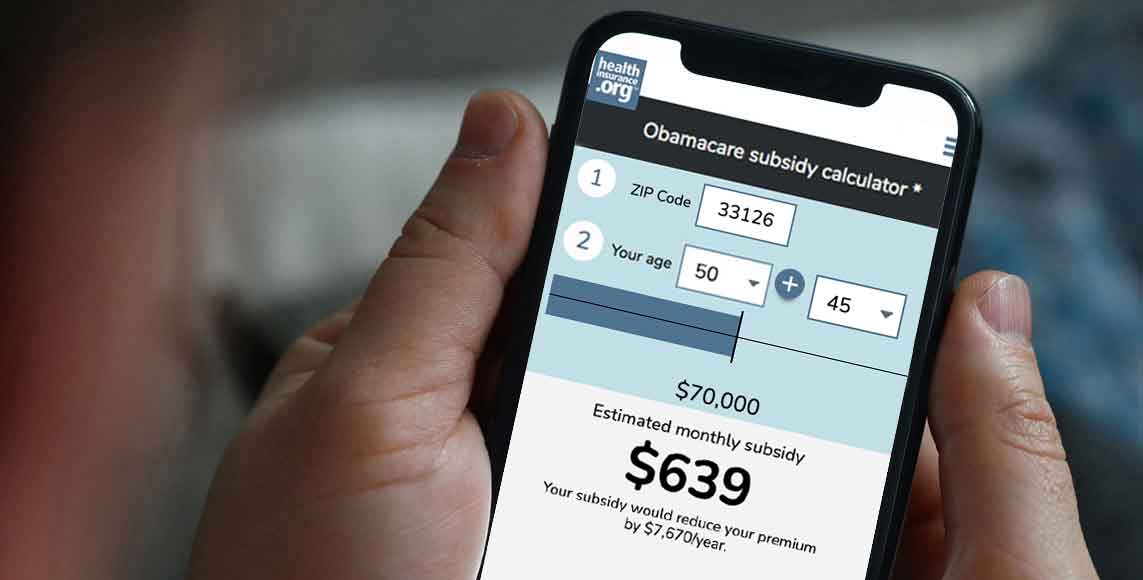
EDIT, April 9, 2021: The IRS has issued guidance clarifying how taxpayers should proceed on this issue. People who would have had to repay some or all of their advance premium tax credit from 2020 can simply skip Form 8962, and do not need to reconcile their advance premium tax credit. People who are owed additional premium tax credit (ie, the amount that was paid on their behalf in 2020 ended up being too small) can still claim it by using Form 8962, just as they normally would. People who have already filed a 2020 tax return and repaid excess advance premium tax credits do not need to file an amended return. Instead, the IRS will simply refund the money to them automatically.
Stressed about having to pay back some or all of the premium subsidy that was paid on your behalf last year? You’re in luck: Under the American Rescue Plan Act (H.R. 1319) – passed by Congress on March 10 and expected to be signed into law by President Biden on March 12 – excess premium subsidies for 2020 do not have to be repaid to the Internal Revenue Service.
This is a one-time provision that’s being granted as part of the federal government’s massive COVID relief measure – which is also significantly increasing premiums subsidies for 2021 and 2022 – and it will come as a great relief to many of the Americans who enrolled in individual and family health plans through the health insurance marketplace /exchange last year.
Although the Affordable Care Act’s premium tax credits (premium subsidies) make health insurance affordable for millions of people, they can be a bit complicated. Unlike other tax credits, they’re available to be used up front, paid directly to your health insurance company throughout the year. (This is called APTC – advance premium tax credit – since it’s paid in advance.)
You can always opt to pay full price for a plan purchased through the exchange and then claim the whole premium tax credit on your tax return, but hardly anyone does that. Instead, most people provide the marketplace with a projection of what they think their income will be for the year, and their estimated premium tax credit is then sent to their insurer throughout the year, reducing the amount they have to pay in premiums.
The catch is that it all has to be reconciled with the IRS when policyholders file their tax returns. Depending on the circumstances, the IRS might give you additional money at that point (if your subsidy was too small), or they might make you repay some or all of the subsidy that was paid on your behalf during the year.
How the law will head off a tax-time subsidy repayment crisis
This issue was shaping up to be particularly significant for the 2020 tax year. The combination of additional federal unemployment compensation and erratic employment made it more difficult than usual for people to accurately project their income for 2020. And, as is always the case, folks whose income ended up over 400% of the federal poverty level were facing the prospect of paying back their entire premium subsidy to the IRS – repayments which could be in the thousands or even tens of thousands of dollars, depending on the circumstances.
An income boost that pushed a household over the 400% federal poverty level threshold might have happened because a person received more unemployment benefits than they expected, or because they got a new job later in the year that put their total income above the subsidy eligibility threshold. In normal years, this would mean the entire subsidy has to be repaid, regardless of how low policyholders’ income was during the months they were receiving a premium subsidy through the marketplace.
And even for people whose income stayed under 400 percent of the poverty level, there was the possibility of having to repay as much as $2,700 in excess premium subsidies, depending on the actual income and tax filing status.
Provision applies only to the 2020 tax year
But thanks to the American Rescue Plan Act, no marketplace plan buyer will have to worry about repaying excess premium subsidies for 2020. If your subsidy amount was too small, you can still claim the additional amount that you’re owed when you file your taxes. But if your subsidy ended up being too large – even if your income ended up exceeding 400% of the poverty level – you won’t owe any of it back to the IRS.
This is a one-time provision for the 2020 tax year only. So it’s still important to project your income for this year as accurately as possible, and keep the exchange updated if your income changes later this year.
How will the provision apply if you’ve already filed your taxes?
EDIT: The IRS issued guidance in April 2021, clarifying that people in this situation do not need to file amended returns. Instead, the IRS will simply refund the money to them automatically.
It’s not yet clear exactly how the IRS will handle excess premium tax credits for people who filed their 2020 tax returns earlier this year and already repaid some or all of their premium tax credit for 2020. Amended tax returns can always be used to make a change, although the IRS has advised that tax filers hold off on this for the time being and await further instructions from the IRS.
It’s also not yet clear how quickly tax software will reflect the fact that excess premium subsidies for 2020 do not have to be repaid. Karen Pollitz, a Senior Fellow at Kaiser Family Foundation, notes that “the forms and tax software already provide for repayment, so it will take a while to straighten all this out. And it will probably be very confusing for people who file their tax returns over the next four to five weeks.”
You’ll want to check with your tax preparer or call your tax software company to see if they have any guidance for you. The tax filing deadline has been extended until May 17, 2021, but it’s also possible to request an extension if you need it, giving you until October 15 to file your return.
Louise Norris is an individual health insurance broker who has been writing about health insurance and health reform since 2006. She has written dozens of opinions and educational pieces about the Affordable Care Act for healthinsurance.org. Her state health exchange updates are regularly cited by media who cover health reform and by other health insurance experts.








